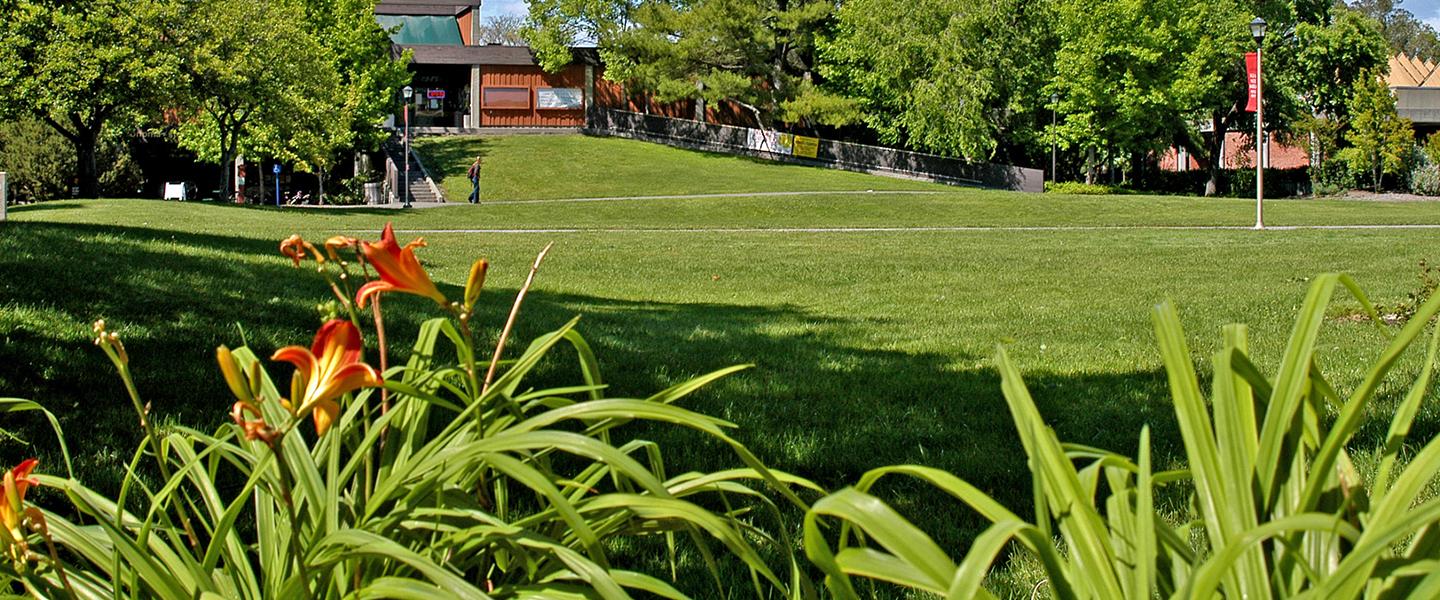Class Structure
Online Computer Sessions
Each week (other than weeks that include a Saturday attendance), students read the assigned materials and compose a one-page response that is then posted on the forum, which helps to explore topics and readings in depth. Over the weekend, they log back in to read each other's postings and respond to at least one other person's comments. The instructor caps the week's discussion with a summarizing response. In this way, class members carry on a rich dialogue without having to coordinate busy schedules.
In Person
Students come 4-5 Saturdays per semester to the Sonoma State campus for a full day of activities.
- Mornings
Devoted to a seminar with your cohort of up to 15 students, with whom you will study throughout the program, forming a close learning community. The bulk of the talking is done by students--they pose the questions, they frame the answers, and the instructor facilitates the process.
- Afternoons
May include a lecture or workshop and a short concluding seminar to discuss the day's insights.
Class Descriptions
Students take one 10-unit interdisciplinary course per semester for a total of four semesters. The courses are designed by at least two faculty members from different disciplines, and explore topics of current interest. The first three are thematic courses taught by faculty; the final 10 units of the major is a self-designed senior project. The core courses are designed to cover a variety of issues and angles on a common theme, moving from the personal to the global.
- LIBS 380 Identity and Society, and Writing Intensive Course (WIC)
Looks at the changing self, drawing from psychological and sociological theory, as well as from literature, art, and biology. It includes autobiographical writing which places the personal process of self-discovery in the context of the broader frame of reference provided by the course readings.
- LIBS 382 Work and the Global Future, and Upper Division Area D
Explores topics such as the global economy and its impact on societies around the world; the shift to a service- and information-based economy; the increasing distance between the haves and the have nots; and issues of race, class, and gender in the workforce.
- LIBS 381 Technology and the Environment
Concentrates on some of the major environmental issues facing us: nature's capacity for regeneration; the relationship between the human environment and the physical environment; sustainability; and economic and political aspects of environmental issues.
- LIBS 470 Senior Project
Allows you to combine your individual interests and goals with one or more themes from the core courses. Projects may be personal, community-based, or career-oriented, and you may work with a mentor to develop and implement your plan. This experience culminates in a formal presentation to your classmates.
Curriculum Notes
Each Course Involves:
- Participation in a learning community
- Thematic interdisciplinary courses
- Global perspectives
- Field-based and experiential learning
- Focus on the world of the future
- Development of written and oral communication skills
The Hutchins approach to learning allows students flexibility and freedom in their studies. Courses are designed to provide students an opportunity to walk around a subject or theme in order to view it from different angles. There is a concerted effort to include differing points of view and to include various modes of presenting the information (audio, visual, tactile, etc.). The assignments are planned to allow maximum flexibility for students to pursue their own interests in fulfilling them.
Both lower division and upper division general education courses and electives for completing the 120 unit requirement for graduation may be met in many ways depending on what requirements you have left to complete. Independent study units at SSU or unfinished requirements at your local community college during the Fall and Spring semesters. Upper-division courses, a Seawolf Graduation Requirement, can be completed at SSU during Summer or Winter Intersessions. The program advisor will help you understand these requirements as part of your participation in the program.

